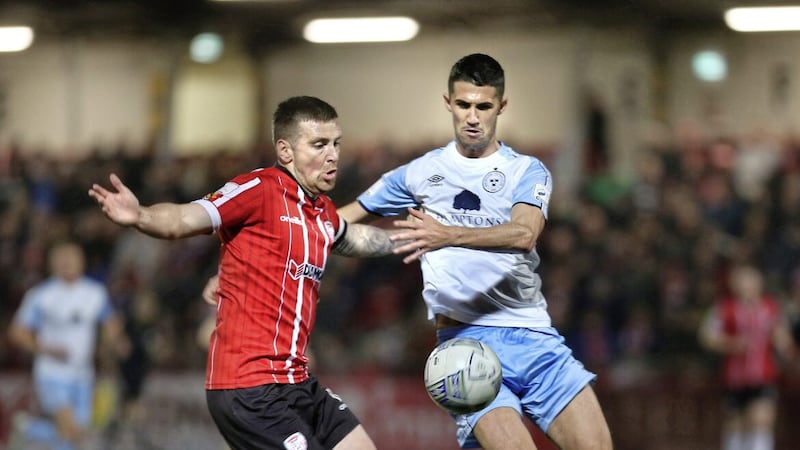A BLACKOUT of this Saturday’s Community Shield between Manchester City and United from Northern Ireland TV screens, in a move aimed at protecting local football, has been averted.
The Northern Ireland Football League (NIFL) drew back from what would have been a hugely controversial decision but geo-blocking remains on the cards as an option.
NI residents already miss out on RTE broadcasts of international soccer, GAA, and Olympics coverage, and now club soccer could be added to that blacklist.
More Irish League matches being played on Sundays is another aspect being considered as NIFL seeks to continue increasing attendances which have enjoyed a rise of 86 per cent since 2013.
The Northern Irish Premiership re-starts this weekend, with an opening match on Friday evening, three matches on Saturday at 3pm, and the clash of Cliftonville and promoted Portadown at Solitude on Sunday. Champions Larne had their scheduled game against Loughgall postponed as the Inver Park men have European matches this Thursday and next.
NIFL CEO Gerard Lawlor revealed that he only discovered on social media several weeks ago that the meeting of English Premier League champions City and FA Cup winners United had been brought forward from the Sunday to the Saturday.

Some of his furious reaction which he recalled has been bleeped out: “Ah – we’ve built our season up, pushed everything into this Saturday, and then they’re just going to show that match free-to-air on ITV! What effect is that going to have on our league?
“We can’t allow our clubs to suffer. It’s not the biggest league in the world but it’s growing and we’re passionate about it.”
Such was the level of anger at NIFL that Lawlor insisted they were at first going to enforce the block-out of the Community Shield broadcast from UTV screens in Northern Ireland:
“At one stage we were, yes we were. We went to the English [Football] Association and said: ‘Hold on a minute, what the heck is going on here?’ – and they said ‘Sorry, we never thought about you.’
“As a matter of goodwill we haven’t blocked this year, but we have told them that if there is a repeat we would have no hesitation in blocking, and we will block in the future.”
Discussions are ongoing about some of the money raised by the Community Shield coming to Northern Irish community programmes.
In the meantime, NIFL has implemented Article 48 of the Uefa Statutes, which allows member associations to have transmission-free periods of two-and-a-half hours on either a Saturday or a Sunday, prohibiting the broadcast of live football in its territory.
“I always thought that had been done in Northern Ireland for years,” admitted Lawlor, “but it turns out it was Scotland and England who did it.”
The only other country in Europe which had actioned article 48 was Montenegro, but Northern Ireland has now joined that trio.
Lawlor insists that NIFL will deploy it if necessary: “I believe over the coming years, aiming at markets such as Asia, there will be a transformation of trying to move into that Saturday afternoon television market.
“The English Football League are planning a ‘Non Blackout Saturday’, so there will be 3pm games on Sky on a Saturday. This is all testing for the future. We have to try to be ahead of the game – or at least on the same page, so that we’re ready for what’s coming at us in the future.”
If more Irish League games do move to Sundays, geo-blocking could be considered then, concluded Lawlor: “We now have this tool which we can use. We might take it away from Saturday afternoons. We have to do what’s best for the local game.”



